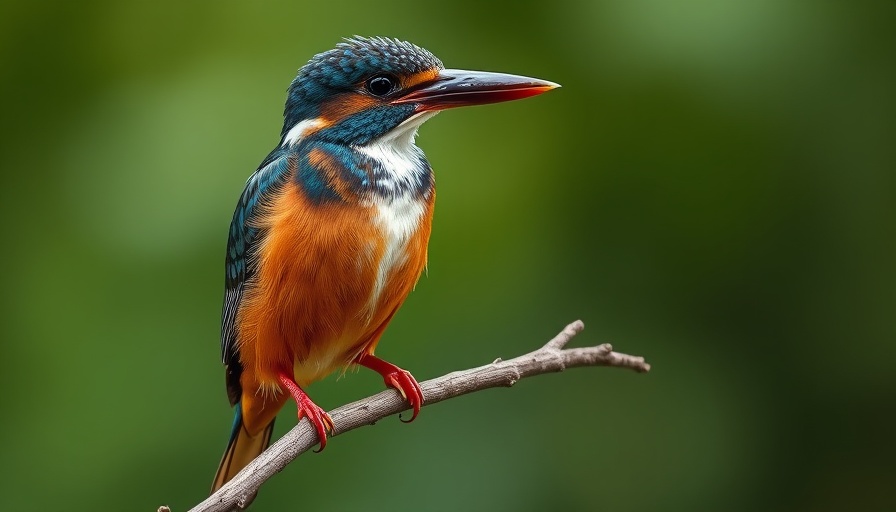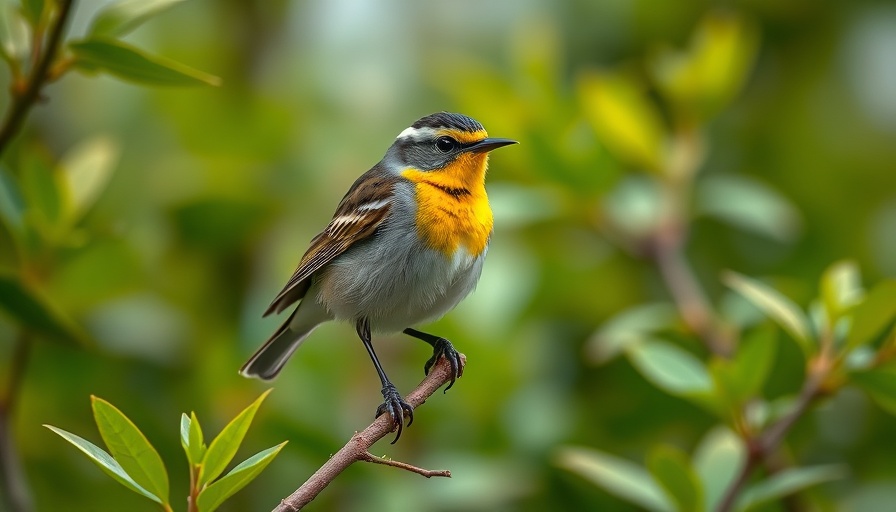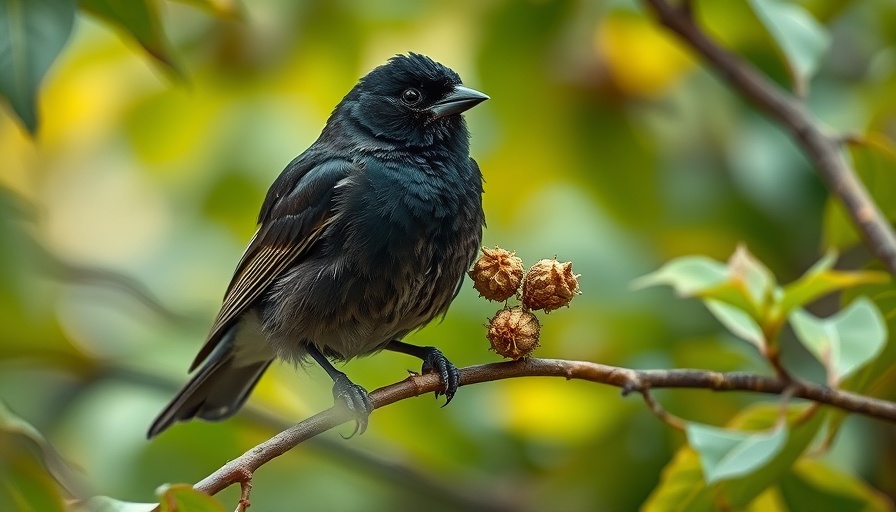
Unearthing the Secrets of Bird Grooming
Understanding how birds maintain their feathers can be a fascinating journey. The act of grooming, or "acicalamiento," is not just a mundane routine; it is essential for the health and functionality of their feathers. A plethora of species dedicate a significant amount of their day to this process, which involves more than just tidiness. Grooming helps keep feathers flexible and in optimal condition, significantly impacting a bird's ability to fly and stay warm.
The Importance of Preening for Feather Health
As outlined in BirdNote's engaging podcast, birds produce oil from a specialized gland located near the base of their tails. This oil plays a crucial role in maintaining feather integrity. When a bird runs its beak along its feathers, it distributes this oil, making the feathers waterproof and enhancing their flexibility. This action not only beautifies the bird but also helps remove dirt and parasites that can hinder their health.
Social Bonds Strengthened Through Grooming
Remarkably, grooming also serves a social purpose among avian pairs. Birds often preen each other's feathers, especially around the head and neck, a behavior that strengthens bonds and reinforces social structures within their communities. This fascinating interaction shows that grooming is as much about connection and trust as it is about hygiene.
Practical Insights for Bird Enthusiasts
For those interested in birdwatching or caring for pet birds, understanding grooming behaviors can illuminate a lot about avian well-being. Observing these actions can help bird enthusiasts identify healthy behaviors in their feathered friends. Are they regularly preening? Are they interacting socially with other birds? These questions can provide insight into their happiness and health.
Join the Conversation about Bird Care
The world of birds is intricate and full of wonder. Whether you're a seasoned ornithologist or just starting to appreciate these beautiful creatures, staying informed is essential. Follow podcasts like BirdNote and connect with fellow bird lovers in communities dedicated to their care and conservation. By engaging in discussions and learning more about behaviors like grooming, we can foster a deeper appreciation for our feathered friends.
 Add Row
Add Row  Add
Add 




Write A Comment